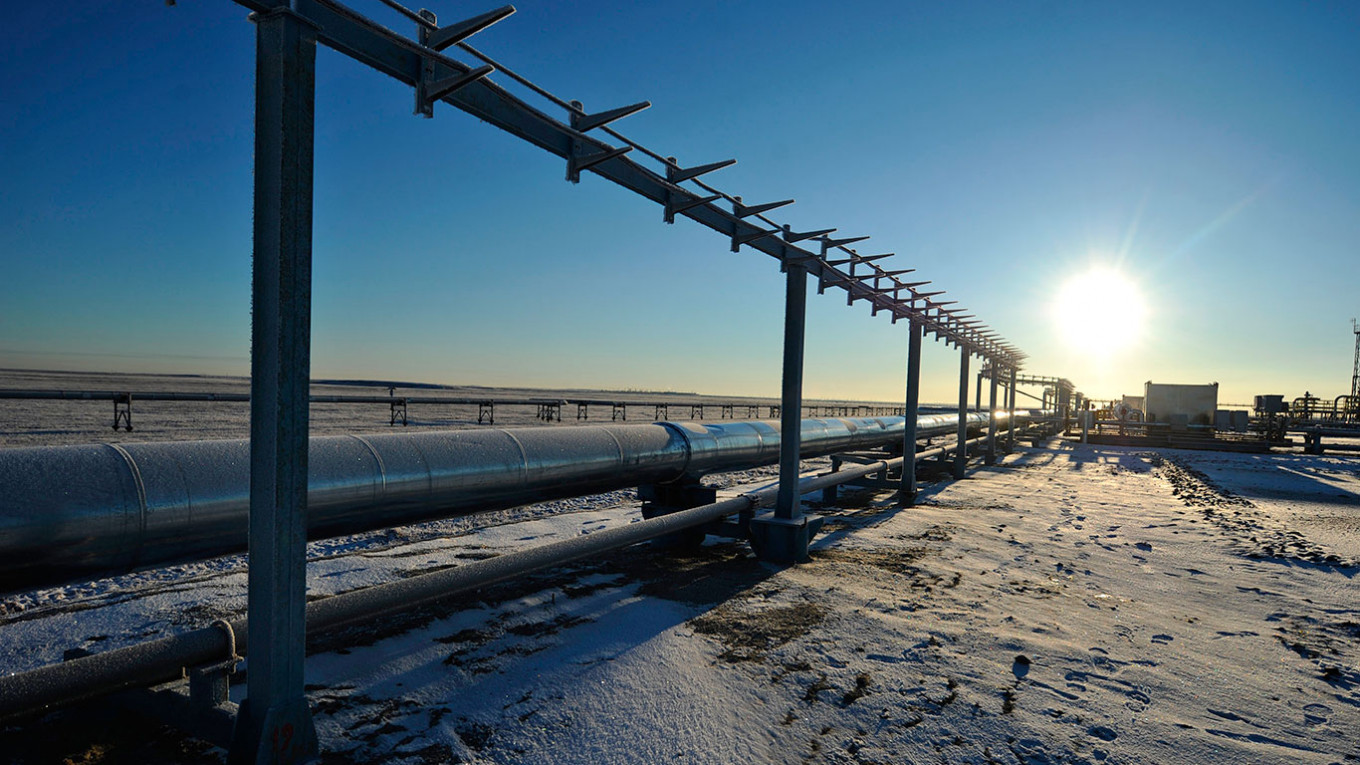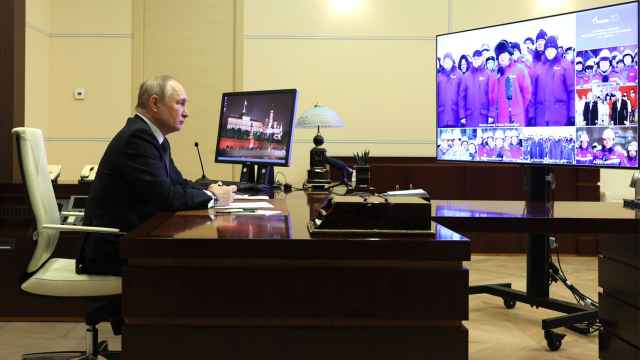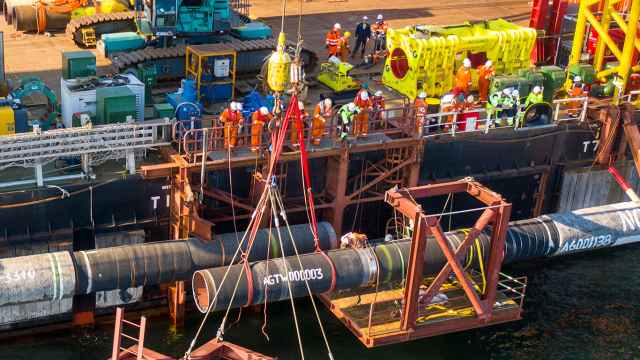Russia’s Gazprom boosted gas supplies to Europe through Ukraine on Tuesday as Washington and Brussels scramble to secure new sources of energy imports for the continent.
Gazprom booked 108 million cubic meters of pipeline capacity Tuesday, Ukraine’s national gas operator said — twice the average daily amount shipped through the route in January. Gas prices in Europe immediately dropped on the news.
European politicians have accused Russia of withholding gas supplies to the EU in a demonstration of the bloc’s reliance on Russian energy and as an attempt to force the certification of the Nord Stream 2 pipeline. The supply crunch has pushed several European countries into a gas price crisis with several energy firms going out of business and heating costs surging for homes and businesses.
Europe’s gas storage levels are at record lows amid the supply crunch, and there are fears across the 27-member bloc and in the U.S. that Russia could turn off the taps in a tit-for-tat move should the West levy harsh sanctions against Moscow in the case of a Russian attack on Ukraine.
More than one-third of Europe’s gas comes from Russia.
Despite tensions between the two countries, Russia and Ukraine have a multi-billion dollar gas transit contract in place which runs until the end of 2024.
While gas supplies can fluctuate from day to day, markets saw the higher supplies on Tuesday as a sign that increased flows were likely to remain throughout February.
However, Russia is still shipping less gas through Ukraine than it was in November and December, Bloomberg reported — with levels similar to typical summer supplies, when gas is in lower demand across the continent.
Russia also refused an option to book extra supply capacity through Belarus, another major supply route to Europe. The section of pipe which typically carries Russian supplies from Poland to Germany has been working in reverse mode since mid-December. Ukraine said Tuesday its gas flow which usually takes supplies into Hungary had also been reversed for the first time ever.
Washington and Brussels have been seeking to secure emergency supplies of liquified natural gas (LNG) from as far away as Australia, but analysts say replacing Russian gas in the short-term will be a difficult task.
Throughout the crisis, Russia’s state-run Gazprom has been posting regular updates on Europe’s record-low gas storage levels on its Twitter account in English, underscoring the EU’s potentially precarious situation.
“The working gas inventories in Europe’s underground storage facilities were 27.3% below the level of last year … Over four-fifths of the gas injected in the summer season is already withdrawn,” it said in a post Monday.
Russian President Vladimir Puitn has denied using gas supplies as a political bargaining chip and urged European countries to strike long-term contracts, rather than rely on the spot market, if they want to secure a stable flow of Russian gas.
A Message from The Moscow Times:
Dear readers,
We are facing unprecedented challenges. Russia's Prosecutor General's Office has designated The Moscow Times as an "undesirable" organization, criminalizing our work and putting our staff at risk of prosecution. This follows our earlier unjust labeling as a "foreign agent."
These actions are direct attempts to silence independent journalism in Russia. The authorities claim our work "discredits the decisions of the Russian leadership." We see things differently: we strive to provide accurate, unbiased reporting on Russia.
We, the journalists of The Moscow Times, refuse to be silenced. But to continue our work, we need your help.
Your support, no matter how small, makes a world of difference. If you can, please support us monthly starting from just $2. It's quick to set up, and every contribution makes a significant impact.
By supporting The Moscow Times, you're defending open, independent journalism in the face of repression. Thank you for standing with us.
Remind me later.






